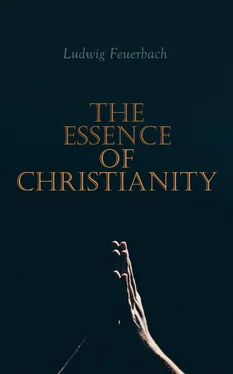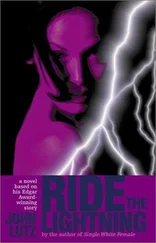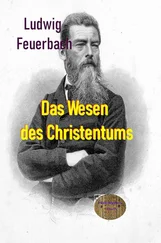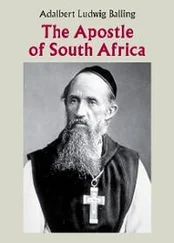Religion is the dream of the human mind. But even in dreams we do not find ourselves in emptiness or in heaven, but on earth, in the realm of reality; we only see real things in the entrancing splendour of imagination and caprice, instead of in the simple daylight of reality and necessity. Hence I do nothing more to religion—and to speculative philosophy and theology also—than to open its eyes, or rather to turn its gaze from the internal towards the external, i.e. , I change the object as it is in the imagination into the object as it is in reality.
But certainly for the present age, which prefers the sign to the thing signified, the copy to the original, fancy to reality, the appearance to the essence, this change, inasmuch as it does away with illusion, is an absolute annihilation, or at least a reckless profanation; for in these days illusion only is sacred, truth profane . Nay, sacredness is held to be enhanced in proportion as truth decreases and illusion increases, so that the highest degree of illusion comes to be the highest degree of sacredness. Religion has disappeared, and for it has been substituted, even among Protestants, the appearance of religion—the Church—in order at least that “the faith” may be imparted to the ignorant and indiscriminating multitude; that faith being still the Christian, because the Christian churches stand now as they did a thousand years ago, and now, as formerly, the external signs of the faith are in vogue. That which has no longer any existence in faith (the faith of the modern world is only an ostensible faith, a faith which does not believe what it fancies that it believes, and is only an undecided, pusillanimous unbelief) is still to pass current as opinion : that which is no longer sacred in itself and in truth is still at least to seem sacred. Hence the simulated religious indignation of the present age, the age of shows and illusion, concerning my analysis, especially of the Sacraments. But let it not be demanded of an author who proposes to himself as his goal not the favour of his contemporaries, but only the truth, the unveiled, naked truth, that he should have or feign respect towards an empty appearance, especially as the object which underlies this appearance is in itself the culminating point of religion, i.e. , the point at which the religious slides into the irreligious. Thus much in justification, not in excuse, of my analysis of the Sacraments.
With regard to the true bearing of my analysis of the Sacraments, especially as presented in the concluding chapter, I only remark, that I therein illustrate by a palpable and visible example the essential purport, the peculiar theme of my work; that I therein call upon the senses themselves to witness to the truth of my analysis and my ideas, and demonstrate ad oculos, ad tactum, ad gustum , what I have taught ad captum throughout the previous pages. As, namely, the water of Baptism, the wine and bread of the Lord’s Supper, taken in their natural power and significance, are and effect infinitely more than in a supernaturalistic, illusory significance; so the object of religion in general, conceived in the sense of this work, i.e. , the anthropological sense, is infinitely more productive and real, both in theory and practice, than when accepted in the sense of theology. For as that which is or is supposed to be imparted in the water, bread, and wine, over and above these natural substances themselves, is something in the imagination only, but in truth, in reality, nothing; so also the object of religion in general, the Divine essence, in distinction from the essence of Nature and Humanity,—that is to say, if its attributes, as understanding, love, &c., are and signify something else than these attributes as they belong to man and Nature,—is only something in the imagination, but in truth and reality nothing. Therefore—this is the moral of the fable—we should not, as is the case in theology and speculative philosophy, make real beings and things into arbitrary signs, vehicles, symbols, or predicates of a distinct, transcendent, absolute, i.e. , abstract being; but we should accept and understand them in the significance which they have in themselves, which is identical with their qualities, with those conditions which make them what they are:—thus only do we obtain the key to a real theory and practice . I, in fact, put in the place of the barren baptismal water, the beneficent effect of real water. How “watery,” how trivial! Yes, indeed, very trivial. But so Marriage, in its time, was a very trivial truth , which Luther, on the ground of his natural good sense, maintained in opposition to the seemingly holy illusion of celibacy. But while I thus view water as a real thing, I at the same time intend it as a vehicle, an image, an example, a symbol, of the “unholy” spirit of my work, just as the water of Baptism—the object of my analysis—is at once literal and symbolical water. It is the same with bread and wine. Malignity has hence drawn the conclusion that bathing, eating, and drinking are the summa summarum , the positive result of my work. I make no other reply than this: If the whole of religion is contained in the Sacraments, and there are consequently no other religious acts than those which are performed in Baptism and the Lord’s Supper; then I grant that the entire purport and positive result of my work are bathing, eating, and drinking, since this work is nothing but a faithful, rigid, historico-philosophical analysis of religion—the revelation of religion to itself, the awakening of religion to self-consciousness .
I say an historico-philosophical analysis, in distinction from a merely historical analysis of Christianity. The historical critic—such a one, for example, as Daumer or Ghillany—shows that the Lord’s Supper is a rite lineally descended from the ancient cultus of human sacrifice; that once, instead of bread and wine, real human flesh and blood were partaken. I, on the contrary, take as the object of my analysis and reduction only the Christian significance of the rite, that view of it which is sanctioned Christianity, and I proceed on the supposition that only that significance which a dogma or institution has in Christianity (of course in ancient Christianity, not in modern), whether it may present itself in other religions or not, is also the true origin of that dogma or institution in so far as it is Christian . Again, the historical critic, as, for example, Lützelberger, shows that the narratives of the miracles of Christ resolve themselves into contradictions and absurdities, that they are later fabrications, and that consequently Christ was no miracle-worker, nor, in general, that which he is represented to be in the Bible. I, on the other hand, do not inquire what the real, natural Christ was or may have been in distinction from what he has been made or has become in Supernaturalism; on the contrary, I accept the Christ of religion, but I show that this superhuman being is nothing else than a product and reflex of the supernatural human mind. I do not ask whether this or that, or any miracle can happen or not; I only show what miracle is , and I show it not à priori , but by examples of miracles narrated in the Bible as real events; in doing so, however, I answer or rather preclude the question as to the possibility or reality of necessity of miracle. Thus much concerning the distinction between me and the historical critics who have attacked Christianity. As regards my relation to Strauss and Bruno Bauer, in company with whom I am constantly named, I merely point out here that the distinction between our works is sufficiently indicated by the distinction between their objects, which is implied even in the title-page. Bauer takes for the object of his criticism the evangelical history, i.e. , biblical Christianity, or rather biblical theology; Strauss, the System of Christian Doctrine and the Life of Jesus (which may also be included under the title of Christian Doctrine), i.e. , dogmatic Christianity, or rather dogmatic theology; I, Christianity in general, i.e. , the Christian religion , and consequently only Christian philosophy or theology. Hence I take my citations chiefly from men in whom Christianity was not merely a theory or a dogma, not merely theology, but religion. My principal theme is Christianity, is Religion, as it is the immediate object , the immediate nature , of man. Erudition and philosophy are to me only the means by which I bring to light the treasure hid in man.
Читать дальше












